Quotes & Sayings About Microeconomics
Enjoy reading and share 12 famous quotes about Microeconomics with everyone.
Top Microeconomics Quotes
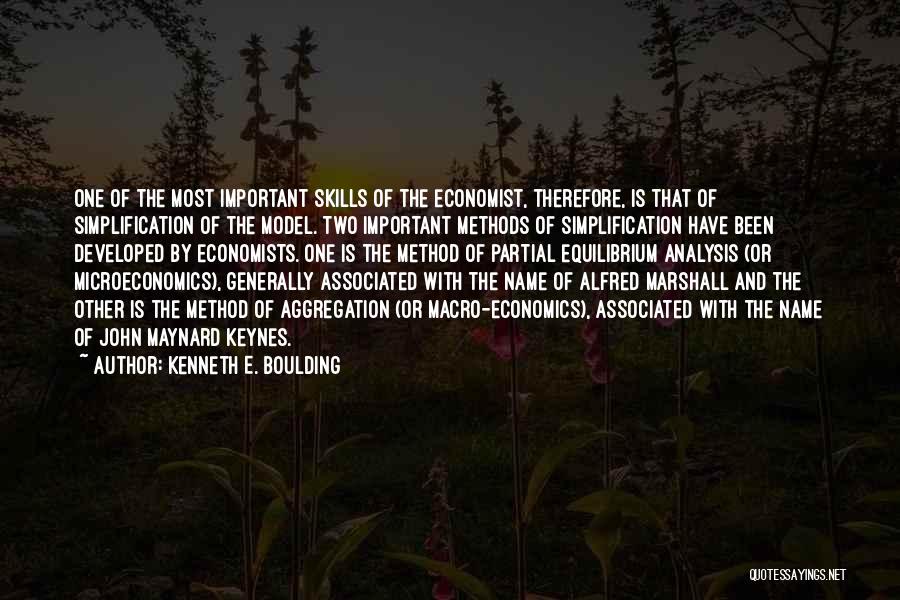
One of the most important skills of the economist, therefore, is that of simplification of the model. Two important methods of simplification have been developed by economists. One is the method of partial equilibrium analysis (or microeconomics), generally associated with the name of Alfred Marshall and the other is the method of aggregation (or macro-economics), associated with the name of John Maynard Keynes. — Kenneth E. Boulding
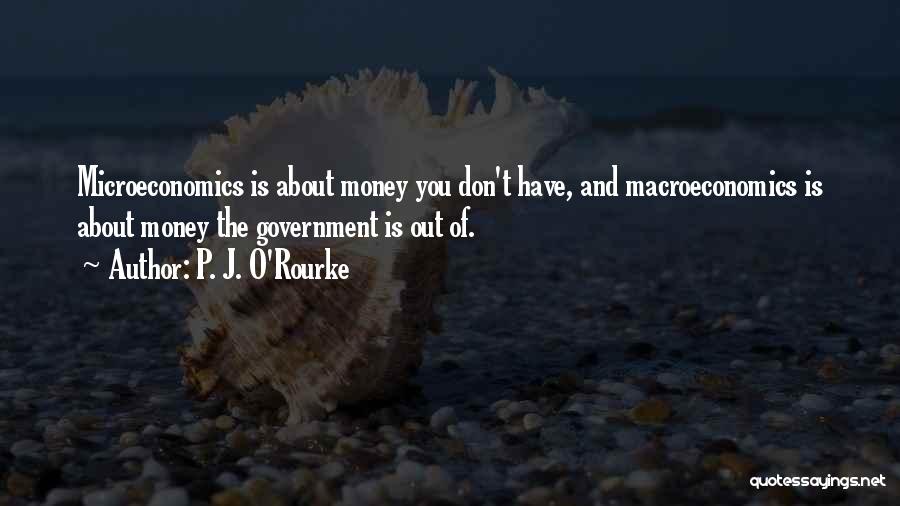
Microeconomics is about money you don't have, and macroeconomics is about money the government is out of. — P. J. O'Rourke
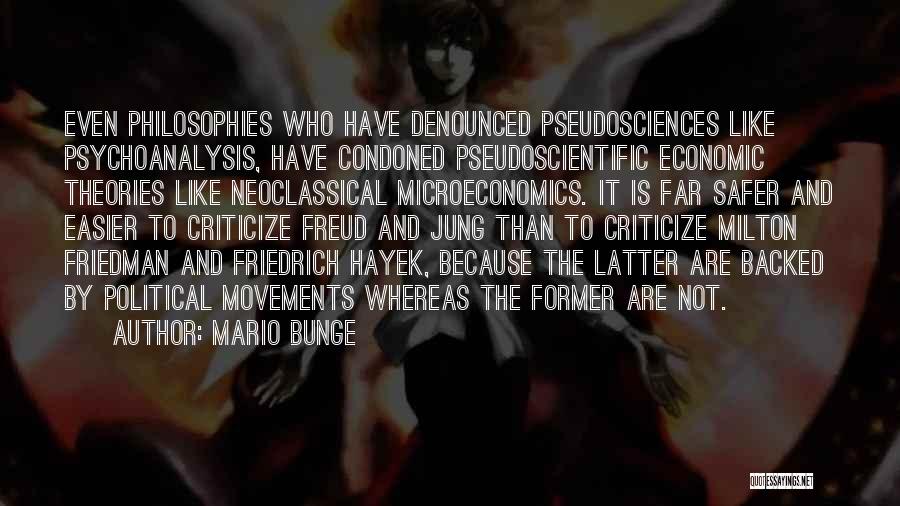
Even philosophies who have denounced pseudosciences like psychoanalysis, have condoned pseudoscientific economic theories like neoclassical microeconomics. It is far safer and easier to criticize Freud and Jung than to criticize Milton Friedman and Friedrich Hayek, because the latter are backed by political movements whereas the former are not. — Mario Bunge
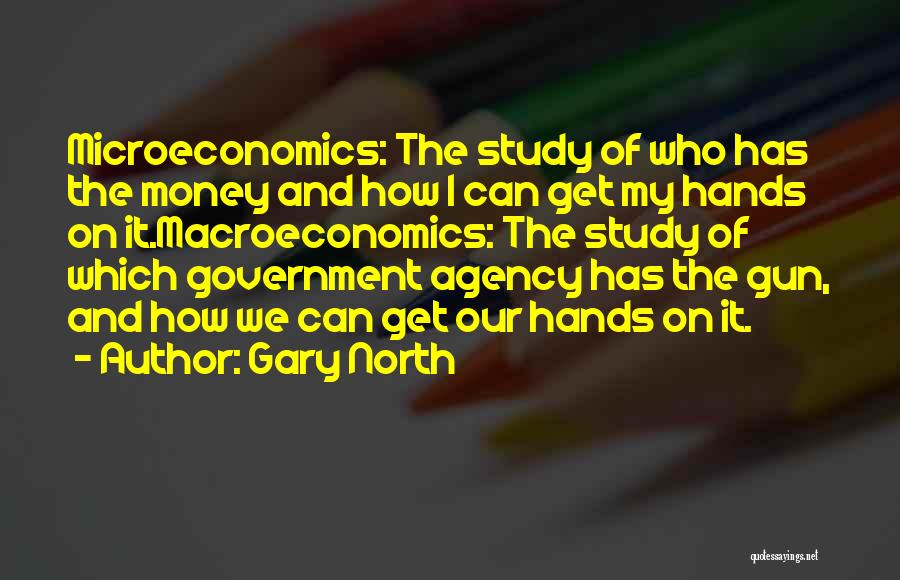
Microeconomics: The study of who has the money and how I can get my hands on it.Macroeconomics: The study of which government agency has the gun, and how we can get our hands on it. — Gary North
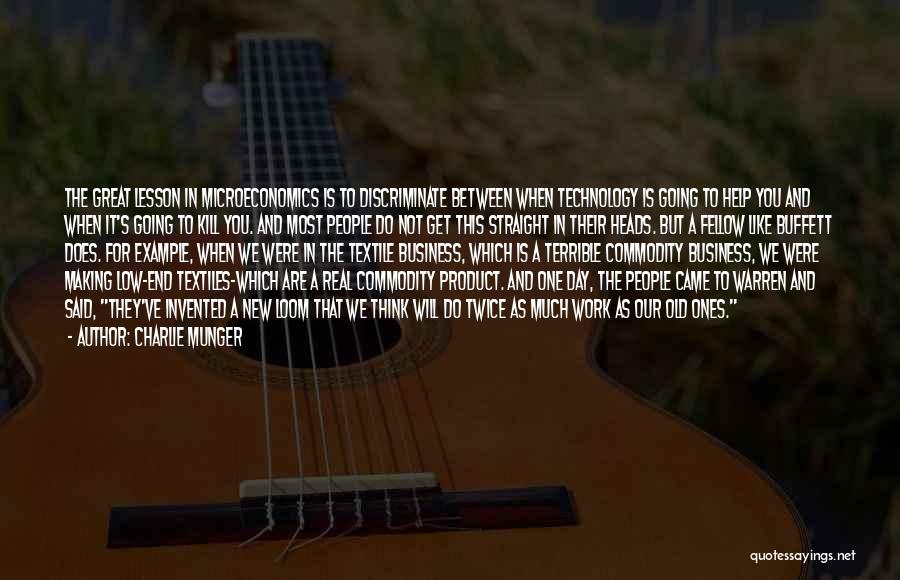
The great lesson in microeconomics is to discriminate between when technology is going to help you and when it's going to kill you. And most people do not get this straight in their heads. But a fellow like Buffett does. For example, when we were in the textile business, which is a terrible commodity business, we were making low-end textiles-which are a real commodity product. And one day, the people came to Warren and said, "They've invented a new loom that we think will do twice as much work as our old ones." — Charlie Munger

FREE EXCHANGE Pricing the surge The microeconomics of Uber's attempt to revolutionise taxi markets 1014 words — Anonymous

Many kids come out of college, they have a credit card and a diploma. They don't know how to buy a house or a car or health insurance or life insurance. They do not know basic microeconomics. — Jesse Jackson
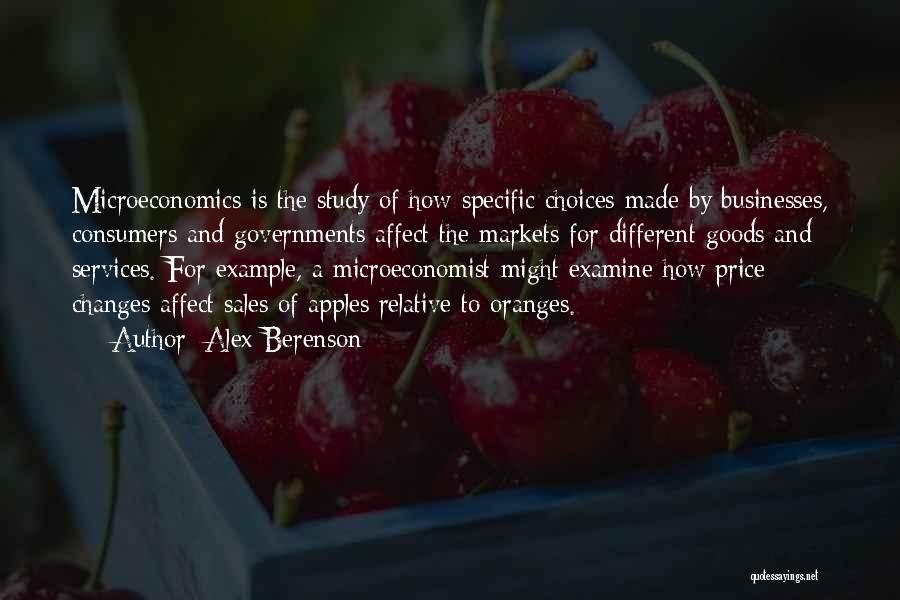
Microeconomics is the study of how specific choices made by businesses, consumers and governments affect the markets for different goods and services. For example, a microeconomist might examine how price changes affect sales of apples relative to oranges. — Alex Berenson
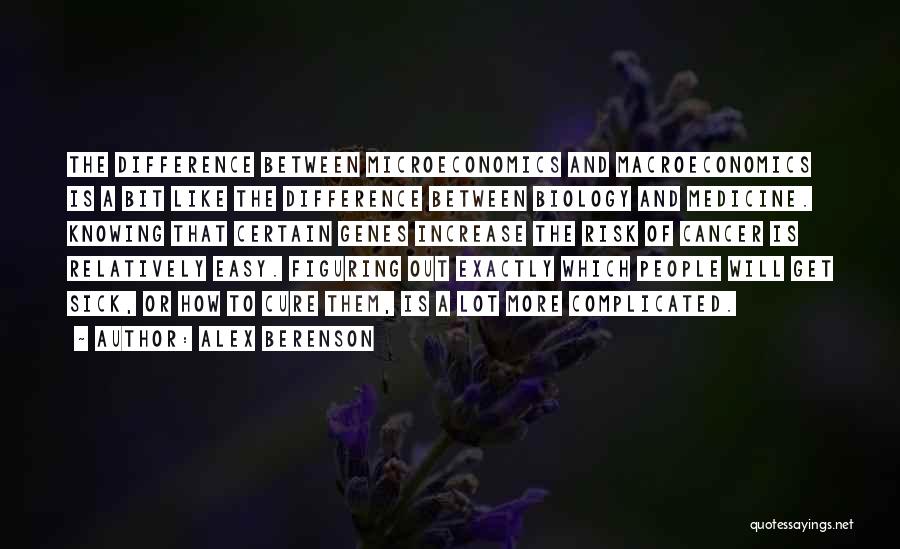
The difference between microeconomics and macroeconomics is a bit like the difference between biology and medicine. Knowing that certain genes increase the risk of cancer is relatively easy. Figuring out exactly which people will get sick, or how to cure them, is a lot more complicated. — Alex Berenson
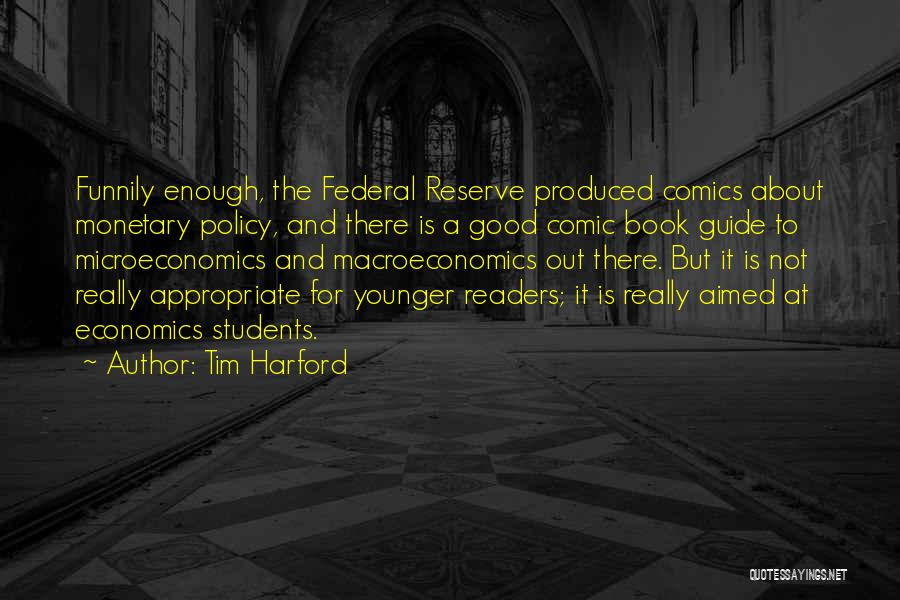
Funnily enough, the Federal Reserve produced comics about monetary policy, and there is a good comic book guide to microeconomics and macroeconomics out there. But it is not really appropriate for younger readers; it is really aimed at economics students. — Tim Harford
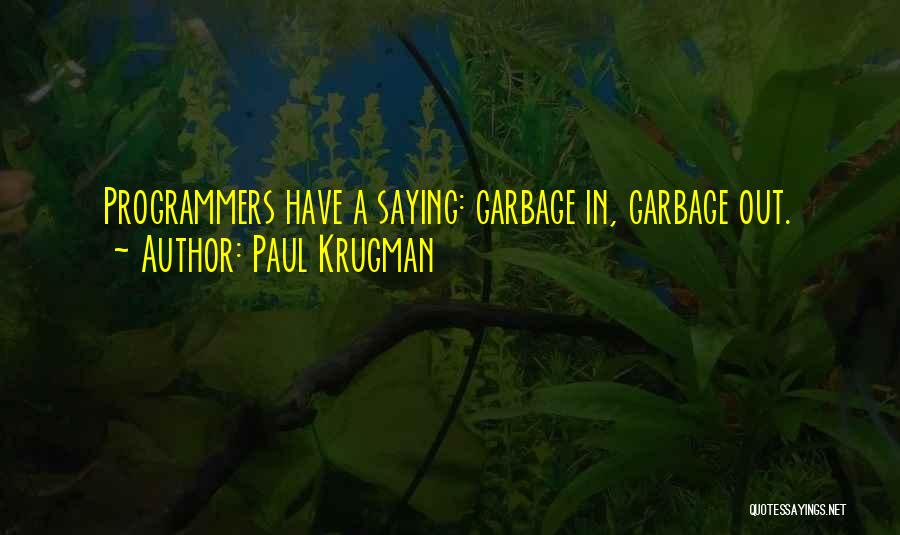
Programmers have a saying: garbage in, garbage out. — Paul Krugman
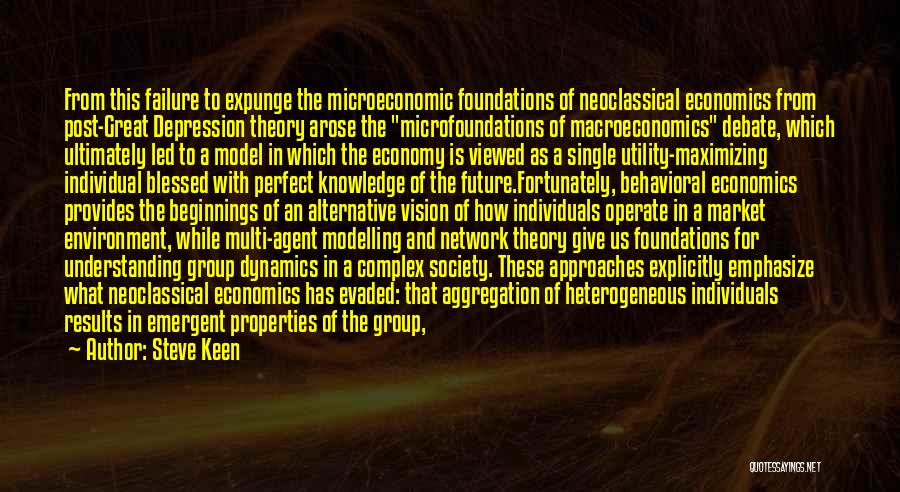
From this failure to expunge the microeconomic foundations of neoclassical economics from post-Great Depression theory arose the "microfoundations of macroeconomics" debate, which ultimately led to a model in which the economy is viewed as a single utility-maximizing individual blessed with perfect knowledge of the future.
Fortunately, behavioral economics provides the beginnings of an alternative vision of how individuals operate in a market environment, while multi-agent modelling and network theory give us foundations for understanding group dynamics in a complex society. These approaches explicitly emphasize what neoclassical economics has evaded: that aggregation of heterogeneous individuals results in emergent properties of the group, which cannot be reduced to the behavior of any "representative individual." These approaches should replace neoclassical microeconomics completely. — Steve Keen





